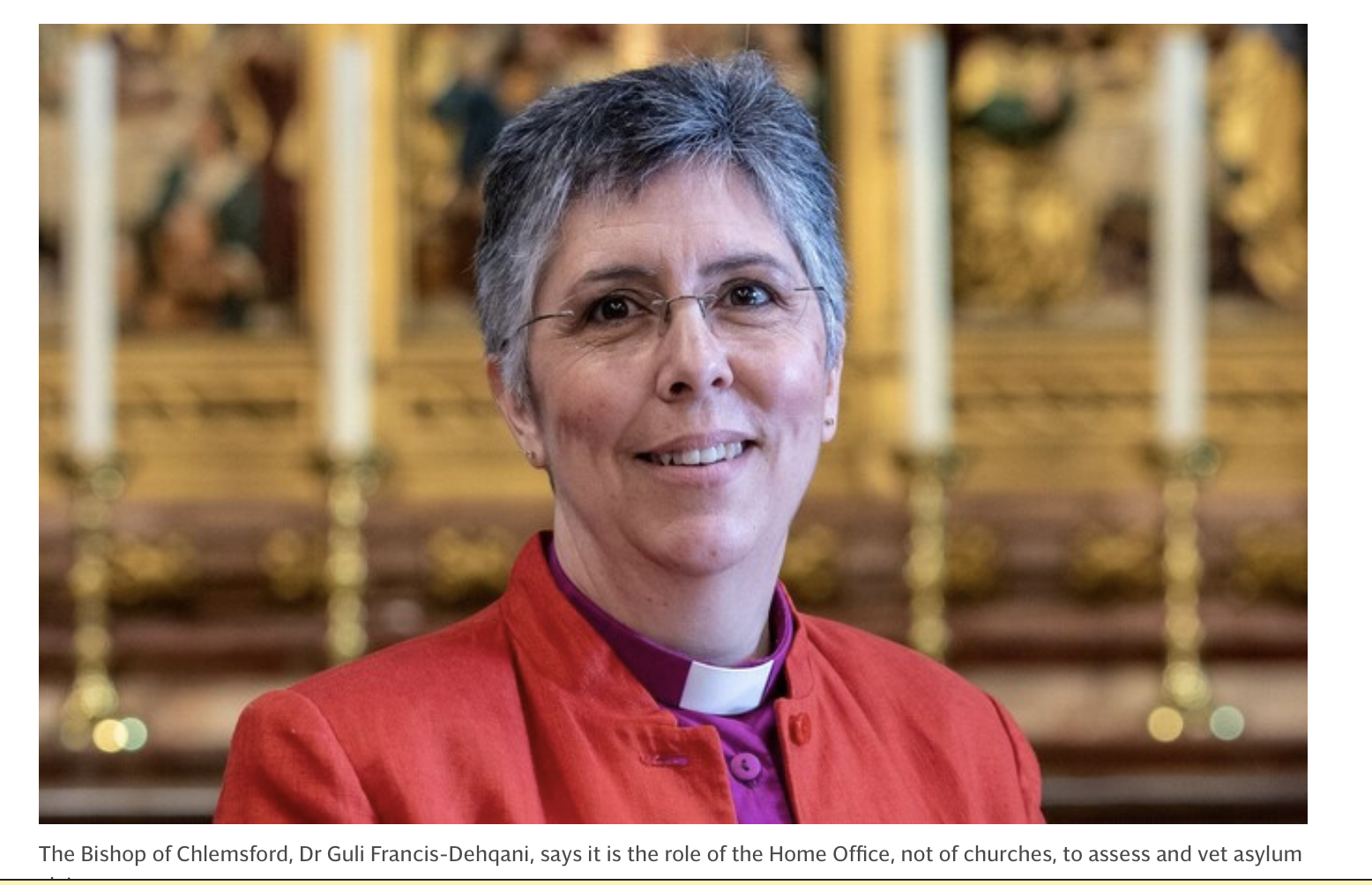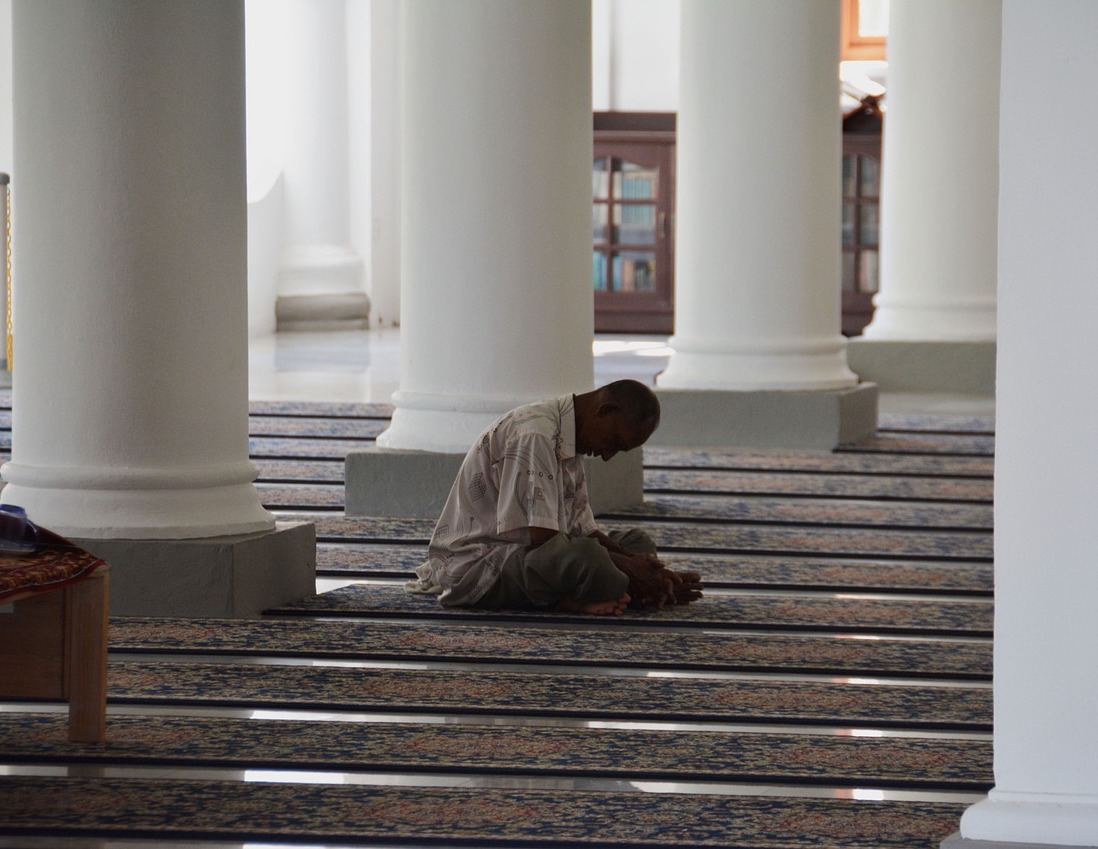My Faith Journey
I was born in Switzerland where we lived until I was 16. My parents, Persian Shia’ Muslims, had married in Birmingham after the World War 2 and were living in Geneva where my dad worked for the World Health Organisation. I was brought up in the Islamic faith, but after wandering into a beautiful Catholic church as a child I became very attracted to the person of Jesus Christ, and secretly began to read the Bible. In 1966 when my father retired from WHO we relocated as a family to Iran. I finished school at the French Lyceé in Tehran, and then studied English at the National University of Iran. Following my graduation in 1972 I came to Britain to do a PhD in English Literature at Nottingham University. It was there that I first came into contact with practising Christians.
Nottingham University’s Methodist chaplain was a wonderful person. I remember my first Christmas there as a lonely misfit with nowhere to go (this was long before mobiles, email, & Skype!) He knew I was a Muslim, but said his church was keen to provide hospitality to foreign students far from home. Through him I met members of his congregation who were kindness personified and who continued to support me throughout my student days. It left a deep and lasting impression. Christ was also present in the many spiritual discussions I had with Jesuits in London and Wales where my literary studies had taken me. I particularly remember one angst-filled conversation when I informed a learned Jesuit priest that although I desperately wanted to be baptized, I just couldn’t bring myself to make that final commitment, and followed this up with several heart-felt reasons in which family ties, culture and politics featured strongly. There was a long silence. Then this wise priest simply said: “We always ask to do God’s will…have you thought that perhaps this is not God’s will?” Coming from a Jesuit, that statement must surely be the height of spiritual generosity! Methodists and Jesuits featured importantly in my life during those halcyon days, and the memory of their personal kindness towards me, as well as their spiritual understanding and tolerance helped me enormously in my subsequent isolation during the Islamic Revolution.
It would have been nice not to have to return to Iran in 1977. I would have loved to have stayed in England, to have got baptized, and to have continued a peaceful academic existence. But it was not to be: I held a student grant from the Shah’s government and was under contract to return. So, I did, but having met a man who would be my future husband, I also left my heart behind. Many of my friends wondered whether I would take that final plunge and commit to Christianity before returning home. But I was too scared to take the step. At that time, being a Muslim, I was unaware of the existence of a church back home into which I might be accepted. However, such a church does exist. The Episcopal Church In Jerusalem and the Middle East, of which Iran is one of four dioceses (the others were Jerusalem, Egypt, and Cyprus & the Gulf) was established following missionary work a century ago. It is a Protestant Anglican church, and most importantly a culturally Persian church – and therefore unlike the established Orthodox churches of Iran which are culturally Armenian or Assyrian and liturgically Chaldean. This Persian Church is mainly a convert church with many first-generation turncoats like me, some of whom since the Islamic Revolution now constitute a widespread diaspora linked emotionally to the Faithful Remnant in Iran.
One evening I was at home on my own, and I knew with absolute certainty that the right time had come. Quite why then, after so many years of indecision, is still a mystery. I just knew—it was just that simple!
I was Baptised and Confirmed on 5 May 1978 by Bishop Hassan Dehqani-Tafti at St Paul’s Church in Tehran during martial law and at the height of the Islamic Revolution, and it was for me a time of profound joy. My parents were not best pleased by this public act of apostasy, and asked me to Never Tell– a burden which has followed me over the years, and at times still haunts me. After the 1979 Revolution I lost my job as English lecturer at the National University, and with it my income. As a family we suffered much uncertainty and mental anguish during the ensuing Purges. Diplomatic ties between Iran and the West ceased, and all missionaries were withdrawn from the country. Hearing the roar of those departing Hercules jets in the skies over Tehran, carrying away the new Christian friends on whom I had come so recently to rely for spiritual guidance, was one my loneliest-ever moments. Being a newly-minted convert I felt as if the carpet had been snatched from beneath my dissimulating feet.
Slowly however, like the proverbial phoenix, I managed to rise from the ashes. Miraculously granted an exit visa, I returned to Britain and re-invented myself as a student nurse in London. James Robb, the Scots doctor whom I had met in Nottingham in 1976, and I met again. We married in 1980, and lived in Glasgow for a couple of years. Subsequently we moved to Leeds, and from Leeds to Grenoble in France, and lastly to Edinburgh in 1987, where we settled and raised our 4 children. The rest is history.
My relatives in Iran never really reconciled to my conversion. They perhaps considered it to be a betrayal of cultural identity – something they didn’t deserve on top of everything else that the Revolution did to them. Filial duty is tremendously important in the Middle East, and the price I paid to put my spiritual desires above parental respect was to be seen as an undutiful child. Fortunately, the younger generation appears to be more tolerant.
It is now more than 40 years since I became a Christian, and despite many shortcomings, my commitment to Christ has never wavered. Sometimes I worry that the ardent and enquiring spirit of my youth which yearned so single-mindedly and against so many odds for Jesus, may be transmuting into a Mrs Comfortable—that my liking for Martha-like tasks may distract me from sitting at Christ’s feet and bathing them with tears. I must not allow that to happen.







It is important to emphasise at the outset that it is the role of the Home Office, not of churches, to assess and vet these claims. I arrived in this country myself as a refugee from Iran, following the events of the Revolution of 1979 during which the small Anglican Community experienced much persecution and my brother was murdered. I know that behind every statistic is a human story and I have a sense of the real trauma that many asylum seekers have experienced. Christians are called to follow the example of Jesus who throughout the Bible focuses his love and care on the most vulnerable and marginalised people in society. Churches do this by helping disadvantaged people of all backgrounds – including asylum seekers – to eat, to sleep, to worship, to find shelter and to be connected to the services which can support them.
As a Christian leader I make no apology for our involvement in supporting people who are often deeply vulnerable and traumatised. But churches have no power to circumvent the Government’s duty to vet and approve applications. It is the calling of clergy to baptise and bring people to God. When a candidate who is an asylum seeker is prepared for baptism, the guidance given to clergy includes the need for discernment: “to be ‘wise as serpents and innocent as doves’. Clergy must be confident that those seeking baptism fully understand what it signifies.” Religious ministers from all denominations will occasionally, after careful assessment, provide statements of support to individuals seeking asylum, but it is wrong to think of this as some sort of magic ticket. The notion that a person may be fast-tracked through the asylum system, aided and abetted by the Church is simply inaccurate. Home Office guidance says “ultimately, evidence even from a senior church member is not determinative”. Responsibility to assess the risk to an individual of persecution on the grounds of faith is that of the Home Office.
Christian leaders have worked with officials to improve understanding of faith-based persecution and Christian identity, and we will continue to do so. We have also offered to work with the Government on ensuring returns policies are developed so that they are safe and more likely to be effective in the long-term. We share the former Home Secretary’s concern about the need to “break criminality”, but those who have claimed a link between the abuse of our asylum system and the action of bishops in Parliament are simply wrong. The plight of refugees the world over is a shared responsibility and one we must shoulder together – locally, nationally, globally. We must do so not by demonising those who arrive on our shores, but by recognising our shared humanity and, as Christians would put it, seeing in others the face of Christ.
Dr Guli Francis-Dehqani is the Bishop of Chelmsford